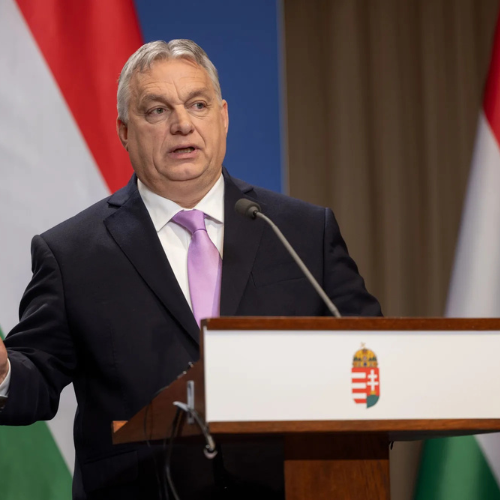Hungary’s Prime Minister, Viktor Orban, has reportedly decided to delay a key decision on extending the European Union’s sanctions against Russia. This decision has raised eyebrows among EU leaders, especially as the deadline for renewing these sanctions is fast approaching. Orban is said to want to wait until U.S. President-elect Donald Trump is officially in office before making any move on the issue. This move is a significant development in the ongoing political struggles in Europe and the wider world.
Hungary’s Delay: A Bold Move Against the EU
In a surprise turn of events, Viktor Orban blocked the EU’s routine step to extend sanctions against Russia. The EU sanctions package, which targets Russia’s economy and defense industry, is usually renewed every six months, with the next vote scheduled for the end of January. These sanctions were introduced after Russia’s involvement in the conflict in Ukraine and its annexation of Crimea in 2014.
Despite the urgency of the deadline, Orban’s decision to block the extension has drawn attention. During an EU summit in Brussels on December 19, the Hungarian Prime Minister made it clear that he was not ready to approve the sanctions without first considering the position of the incoming U.S. President. Orban has reportedly expressed his desire to ensure that the EU’s approach to Russia is in line with the new U.S. administration. This is seen as a strategic move, given Orban’s close ties with Donald Trump.
Orban’s decision is seen as an attempt to avoid making any decisions that could contradict what Trump might choose to do after his inauguration. This has added an element of uncertainty for EU leaders, who are now left waiting to see how the situation will evolve.
Hungary’s Orbán Warns of EU Economic Collapse Over Sanctions on Russia
A U.S. Ally: The Orban-Trump Connection
Viktor Orban has long been an ally of Donald Trump, and their relationship is a key factor in Hungary’s stance on Russia. The two leaders met earlier this month at Trump’s Florida residence, where discussions likely focused on Hungary’s approach to EU policies and its position on Russia.
Orban has been vocal about his support for Trump, especially after the U.S. election. The Hungarian Prime Minister has often criticized the EU’s stance on Russia and Ukraine, and he has called for a more balanced approach to Russia. He has made it clear that he wants to avoid any actions that might create a rift between Europe and the incoming U.S. administration. This reflects Orban’s belief that Trump’s presidency will lead to a shift in U.S. foreign policy, particularly regarding the war in Ukraine.
In past months, Orban has also obstructed EU efforts to provide military support for Ukraine, a country at the center of the ongoing conflict with Russia. His refusal to support further sanctions against Russia is just the latest example of his resistance to EU actions that he perceives as harmful to Hungary’s interests.
The Stakes: Sanctions, Russia, and European Unity
The EU sanctions on Russia are an important part of the West’s strategy to put pressure on Russia for its actions in Ukraine. These sanctions target a range of Russian industries, including its defense sector, and aim to limit Russia’s ability to conduct military operations in Ukraine and other regions.
Hungary’s Leadership in the EU: Orban’s Assertive Policies Under Scrutiny
However, the decision to extend or lift these sanctions is not straightforward. EU member states must reach a unanimous decision to extend the sanctions, meaning that even one country can block the renewal. This makes Hungary’s decision to delay the vote significant, as it could influence the outcome of the vote and potentially weaken the EU’s stance on Russia.
Orban’s opposition to the sanctions comes at a time of political instability within Europe. In countries like France and Germany, there are growing concerns over Russia’s military advances in Ukraine. Russia has been steadily gaining ground in the eastern part of Ukraine, which has created further pressure on European leaders to take stronger action. But the divisions within the EU, especially over how to handle Russia, are clear. While some countries argue for more pressure on Russia, others, like Hungary, are wary of antagonizing Moscow too much.
As the deadline for the EU sanctions approaches, all eyes will be on Orban and the EU’s decision-making process. The outcome of this vote will likely depend on whether Hungary decides to go ahead with the extension or whether it continues to hold out until Donald Trump takes office. With such a high level of political maneuvering, the EU’s unity on this issue is at risk, and it remains to be seen how other European leaders will react to Hungary’s actions.


